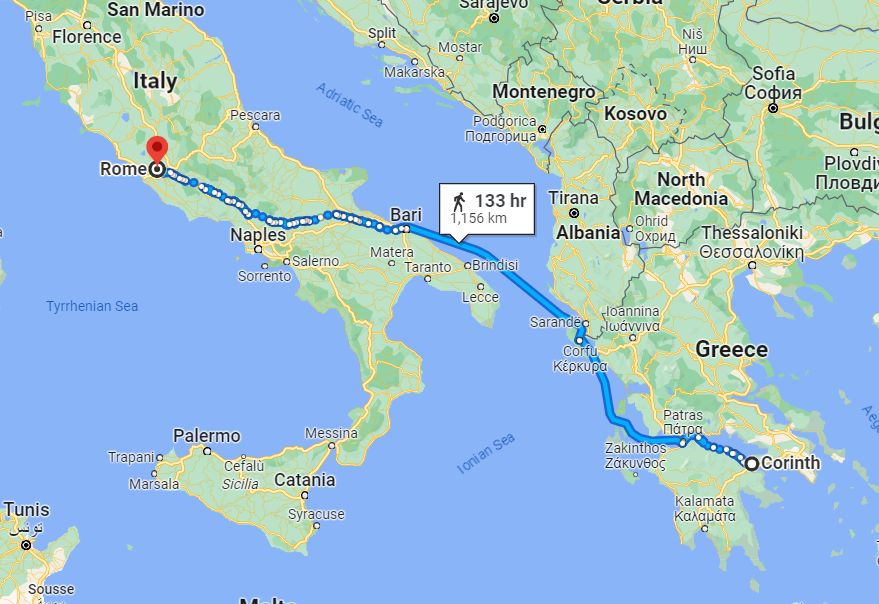Patronesses Phoebe and Susanna: Two named women in the Bible
By Elizabeth Prata
Susanna and Phoebe are both mentioned as women who believed in Jesus and supported his ministry. In Romans 16:2 Phoebe is named as a benefactor, and Susanna was giving out of her means. (Luke 8:2).

Now I commend to you our sister Phoebe, who is a servant of the church which is at Cenchrea; that you receive her in the Lord in a manner worthy of the saints, and that you help her in whatever matter she may have need of you; for she herself has also been a benefactor of many, and of myself as well. (Romans 16:1-2).
And it happened that soon afterward He was going around from one city and village to another, preaching and proclaiming the good news of the kingdom of God. The twelve were with Him, and also some women who had been healed of evil spirits and sicknesses: Mary who was called Magdalene, from whom seven demons had gone out, and Joanna the wife of Chuza, Herod’s manager, and Susanna, and many others who were ministering to them from their possessions. (Luke 8:1-3)
Some women actually did have a job in Bible times. Lydia was a Seller of Purple- it seems she had her own business. Whether she was a widow or born into it is unknown, but she was successful enough to host Paul and his entourage in her home. (Acts 16:14, Acts 16:40) Rachel was named as a shepherdess. (Genesis 29:9). Priscilla with her husband is listed as a tentmaker. (Acts 16:2-3) Shiprah and Puah were Hebrew midwives. (Exodus 1:15). Sherah was a builder. (1 Chronicles 7:24). Professional mourners was a job that women had, too. (Jeremiah 9:17).
And Susanna and Phoebe were Patronesses. This was an actual title and job in the Bible times. In Rome especially, patrons & patronesses, and their clients, lived by a codified set of rules for their engagement. It was a system that was part of the social order. It was always the upper class person giving largesse to the lower, in the form of money, food, or legal help. The client had certain obligations as well to his patron. The client was expected to show deference to his patron, especially by calling upon him each morning (salutatio) and by aiding him in his private and public life. If one or the other ended up in court, neither could give evidence against the other, just as husbands and wives today can’t be compelled to testify against each other.
Patronage was a relationship distinct from other relationships.
In Israel, the rules in the patron/client relationship were not as well-known, but patrons and patronesses existed. In Christianity, those who gave out of their means were under a different set of standards, which is to say, a relationship based on grace and the ultimate benefactor being God.
For example, Bible verses tell us we are commanded this or that about money, i.e. to give sacrificially, to help the brethren where needed, to love one another, not to show partiality, etc. But it’s interesting to note that benefactors existed in that era and Phoebe and Susanna were given special mention. Phoebe had gained special respect from Paul and given a sensitive charge- bring the letter. In this case it was Romans 16.
“Phoebe was entrusted by Paul with a key letter on which the next phase of his ministry depended. The phrasing of Romans 16:1–3 makes it clear she fulfilled the usual role of letter carrier.” Source
In those days, there was a postal route but no postal carrier. If you wanted to send a letter you had to have someone to deliver it for you. Paul regularly sent his co-workers for this very reason.
By sea the trip was about 700 miles and could take 5-10 days in good weather. With a combination sea/land route following the Adriatic Sea, the distance was about 800 miles. There were paved roads and travelers often rode donkeys and stayed in inns along the way. This route took considerably more time–3 to 4 weeks–but in the winter months it was the only open route for travelers.
Phoebe was also most likely responsible for paying her travel expenses, including sea passage for her and any travel companions, food and wine for her journey, etc. Importantly, Phoebe needed to physically protect Paul’s letter. Source

In the case of Romans 16, Phoebe traveled almost 800 miles if she went by the direct route shown on this modern day map. Entrusted, as a woman, to travel to Rome with scripture, fragile papyrus, all that way is certainly an indicator of Paul’s esteem and trust of this woman. Perhaps he had met her when he was with Prisca and Aquila setting out for Syria and stopping in Phoebe’s home base in Cenchreae to have his hair cut for the vow. Cenchreae is a coastal town about five miles from the city of Corinth.
It would be important to say the word he used for helper with reference to Phoebe in Acts 16:2, is prostatis. It can mean a person in a position of leadership, whether as a president, chief, or presiding officer. It can also refer more broadly to a guardian or a helper, often meaning someone who takes the lead in ensuring someone else’s protection and provision via their own means, usually, wealth. It’s not likely Paul meant the former in reference to Phoebe, since women were not leaders in that sense. We know he meant helper, and he likely used the word in its definition of patron, though translators are unsure.
“She [Phoebe] had taken it on herself to ensure the practical well-being of many through hospitality and financial assistance, which indicates she probably possessed significant wealth. Perhaps she was the host of a house church. Cenchreae was the location of a busy seaport, affording many opportunities to offer financial assistance and hospitality.” Source The Lexham Bible Dictionary. Lexham Press.
Can you imagine the uncertainty the first century disciples lived under? Guilds, which were unions on steroids, would block out Christians because of their negative impact on idol making (Acts 19:24-27), not having a place to live, being persecuted, chased, beaten up. Not knowing where the next meal would come from sometimes. But they could count on Phoebe. They knew they had support there. No wonder Paul said ‘succorer’ in reference to Phoebe.
We know less than less about Susanna, because only a very few words surround her name in the Bible. But we can glean.
First, we know that Jesus had healed her, so she was probably grateful.
Susanna doesn’t even have her own GotQuestions entry but is mentioned with Joanna:
Joanna was one of several women in the Bible healed of “evil spirits and diseases” by Jesus Christ (Luke 8:2). After being healed, Joanna accompanied Jesus and the twelve disciples on their travels from town to town and helped support the Lord’s ministry. As the wife of Chuza, the manager of Herod Antipas’ household estate, Joanna was a woman of means and influence. Along with Mary Magdalene, Susanna, and others, Joanna helped provide food and supplies for the missionary troupe from her own wealth (Luke 8:1–3).
Susanna was able to travel with Jesus and his other followers and provide him/them with a level of financial support. She was presumably single, seemingly not needing permission from a man (husband, father, brother, uncle, owner, etc.) to give out of her means, and indicating she had her own means. If she was married, her husband would be extremely tolerant of her being away and turning into an itinerant pilgrim, or perhaps he had divorced her when she converted. We simply do not know.
Both Phoebe and Susanna traveled. Phoebe to bring the letter 800 miles to Rome and Susanna to follow Jesus. This was highly unusual in that day. It indicates the two women were likely unmarried since they were apart from their own home for such long periods. Yet they had means enough to support a large and growing ministry.
Patronage in Christian life of course is vastly different from patronage in Rome. It involves often a one-way generosity without expecting something in return, a sacrificial generosity, a denial of self, and a love of others. It is based on grace and a love for the Savior, not a codified set of socio-economic rules. Both Phoebe and Susanna were ‘patrons’ in the sense of living a grace-filled, loving life in service to their Lord and His Apostle, whom they were blessed to help in person.
I am eager to meet these women. I’m amazed at how the Lord collects the people he wants, fashions them into people in various socio-economic stations of life (think of the leper asking for healing or the blind man since birth, yet also wealthy Joseph of Arimathea and the women mentioned today) to do their part in His plan of this long road to the culmination of history.
TRIVIA
Susannah was the name of Charles Spurgeon’s wife.
The name Phoebe means “pure”, “radiant”, or “bright”












